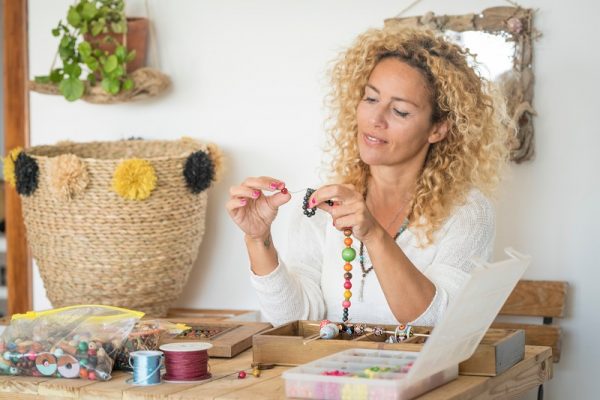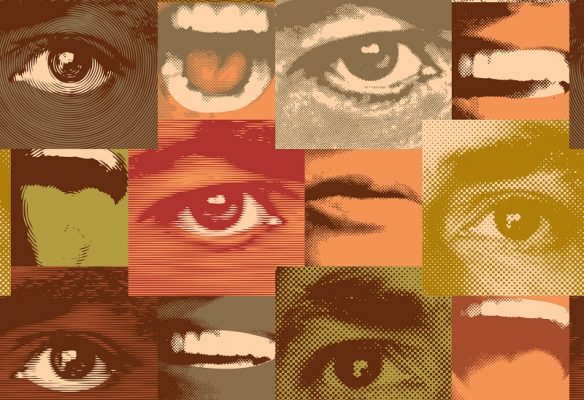Anxiety and Depression
Bob Rich’s Self-Therapy Guide: Dealing with Secondary Gains
In this series, Dr. Bob Rich teaches you how to leave behind depression, anxiety, and other forms of suffering all too common in our crazy world. Recovering the Self published two sections of Bob Rich’s book From Depression to Contentment: A self-therapy guide in a series of posts – the first section ending with the quest for meaning and the second section concluding with The Development of Resilience. The third section of Bob’s work continues here with special attention to various techniques and practices that are helpful in controlling depression.
In the previous post, Bob offered some expert advice on how to deal with one’s repetitive thoughts that hamper the quest for inner peace. Here he reveals an interesting and important contributor to pain that is part of depression – secondary gains. Read on!
Dealing with Secondary Gains
Every problem has some benefits. Depression is no exception. This is not to say a sufferer deliberately pretends, or makes matters worse. All the same, there are payoffs.
This is best illustrated with physical pain.
Fiona was a 43-year-old mother of two. She had suffered migraines for decades. As part of a complex attack on the problem, she analyzed her family’s reaction to her suffering. She found that when she had one of her headaches, the children didn’t squabble. Usually they did. Husband and kids took over almost all the household tasks. At other times, she needed to argue and cajole to get them to do their fair share, even though Fiona had a full-time job.
She didn’t develop a headache in order to gain considerate, caring attention from her family. Nevertheless, it was a fact that this was what she always got when a migraine struck her, and never when she felt well.
Part of her cure was to reengineer family dynamics. All four members of the family signed a contract, involving the fair distribution of household tasks. Husband and kids agreed to “reward mom for NOT having a migraine” instead of rewarding her for having one.
Fiona also learned how to identify the triggers for her headaches: to spot early warning signs. She then took analgesics before the pain struck, and used relaxation techniques to short-circuit the mechanism of a migraine. But removing the secondary gains was a big part of her success.
OK, can you think of possible payoffs for acting depressed? A payoff is the reward that might come your way, e.g., getting out of something you’d rather not do, receiving sympathy, or being able to withdraw from a situation. Once you have gathered enough information, you can then get rewards for defeating the problem rather than rewards for suffering it.
After I wrote this section, I posted it on my blog, with a request to my friends to suggest rewards for acting depressed from their own lives, or those of others. This was very educational for me. I only received one explicit suggestion. Margaret Goodman wrote, “Some people… can be rude and cruel, then claim that the depression made them do it.”
Instead, there were several strongly felt descriptions of depression from the inside. Jean, a friend and colleague I deeply respect, put the problem with my request the most clearly:
Problem is, depression constricts your thinking. It is almost impossible to see outside the box of despair. If the depression were mild, or intermittent, it would be possible. But a full-fledged clinical depression, no. It would take a compassionate, tactful, and patient outsider to point out the benefits. Hopefully you, in your book, will be that person to many others. The only benefit I experienced from years of unremitting depression was validation that there was truly something wrong with me.
Her blog is at http://ra-info.org/
I have banished my depression decades ago. Now that I look back, I can see the secondary gains it used to get me. But I have to agree with Jean. If someone had asked me to spot them back then, I probably wouldn’t have managed it. Nevertheless, getting out of that box, and seeing my behavior from the outside, would have been a great liberation.
So, let’s use one of the tools of the problem-solving kit [Link to post]. Do you know anyone else who is struggling with depression? Suppose that person came to you, asking for advice on spotting secondary gains.
Here is a small selection of the kinds of things you’d look for in helping your friend:
- “Oh, I can’t do it” means the person can get out of trying.
- Self-harming and suicide attempts attract notice, when nothing else has.
- “I’ve slept in again. Oh well, no point going to school this late.”
- “I just couldn’t get to sleep last night, then I kept waking up. Sorry, I can’t concentrate.”
- Wearing his sad, hopeless face usually induces Mary to do kind things for him.
- Acting grumpy gets others to tiptoe around him, which gives him a sense of power.
- When she locks herself into her room, she usually gets out of her household tasks.
- Saying “Oh, I am so tired!” often results in Jim doing most of her share.
- Those wretched girls don’t bully her when she spends lunchtime sitting in a quiet corner somewhere, doing nothing.
- People leave him alone when he strides up and down just to get rid of energy. (This is “psychomotor agitation”)
- “A sure way to get reassurance is to cry and say it’s all my fault.”
- When she fails at something, she gets confirmation that she was right: she truly is hopeless and useless.
- He doesn’t have to put up with all that empty chatter and socializing when he chooses to isolate himself.
If you can spot patterns like this in someone else’s life, you may spot some in your own.
This then gives you enormous power: the ability to see yourself from the outside at least to some extent, and for a time. Each occasion you manage it, you grow.
The next step is, there are probably people in your life who know you well: those you live with, or used to live with, those you spend many hours with at work, and so on. Some of them are people you can trust to be kind. Ask them to help in the way I’ve described for your analysis of someone else’s patterns.
Your helper might spot that she tends to be kind to you when you can’t eat much dinner. Be thankful for that, but also, the two of you can use this new insight to ensure the kindness will not be tied to lack of appetite in the future.
And the logical follow-up is, “What else may I be doing to fish for kindness?”
You have climbed out of being a helpless prisoner in the box, and are now an active agent in reengineering your life.
Homework
Observe other people you know or suspect are depressed, and look for secondary gains they receive for specific behaviors like those I’ve described. There is absolutely no need to tell the other person about this, unless asked.
Pluck up your courage, and ask people in your life to help you to find rewards for the various symptoms of depression.
Once either of these activities have helped you to identify a secondary gain, set up an ABC diary to track it. For example, you might notice that “Whenever Tim has his room tidy, Mom expects him to help with the housework. When his room is a mess and he sits around with a hangdog face, she tidies it for him and lets him get away with not helping. OK, does this apply to me?” So, you’d have the ABC diary for when Mom eases off on you about helping with chores. What behaviors of yours is this associated with?
– Dr. Bob Rich








